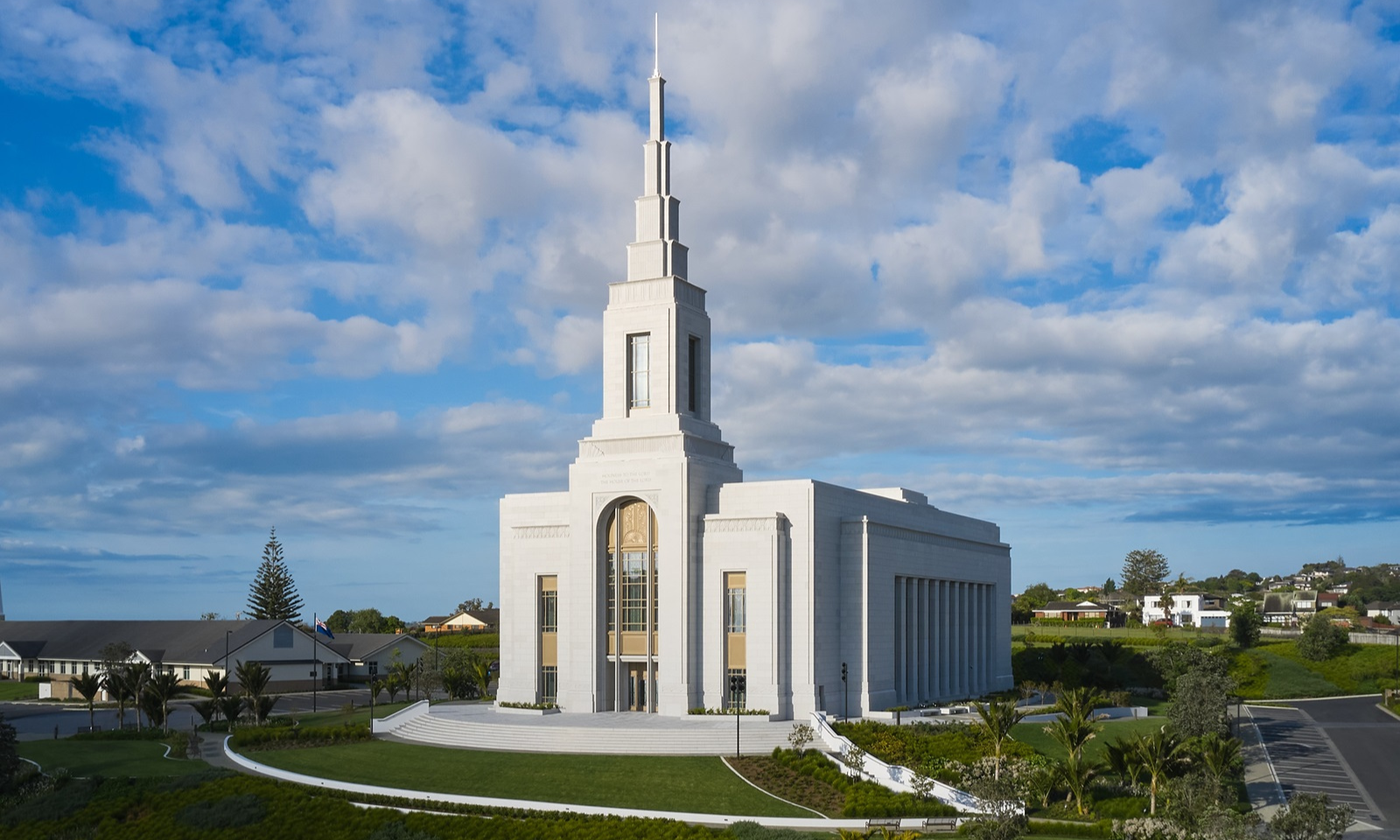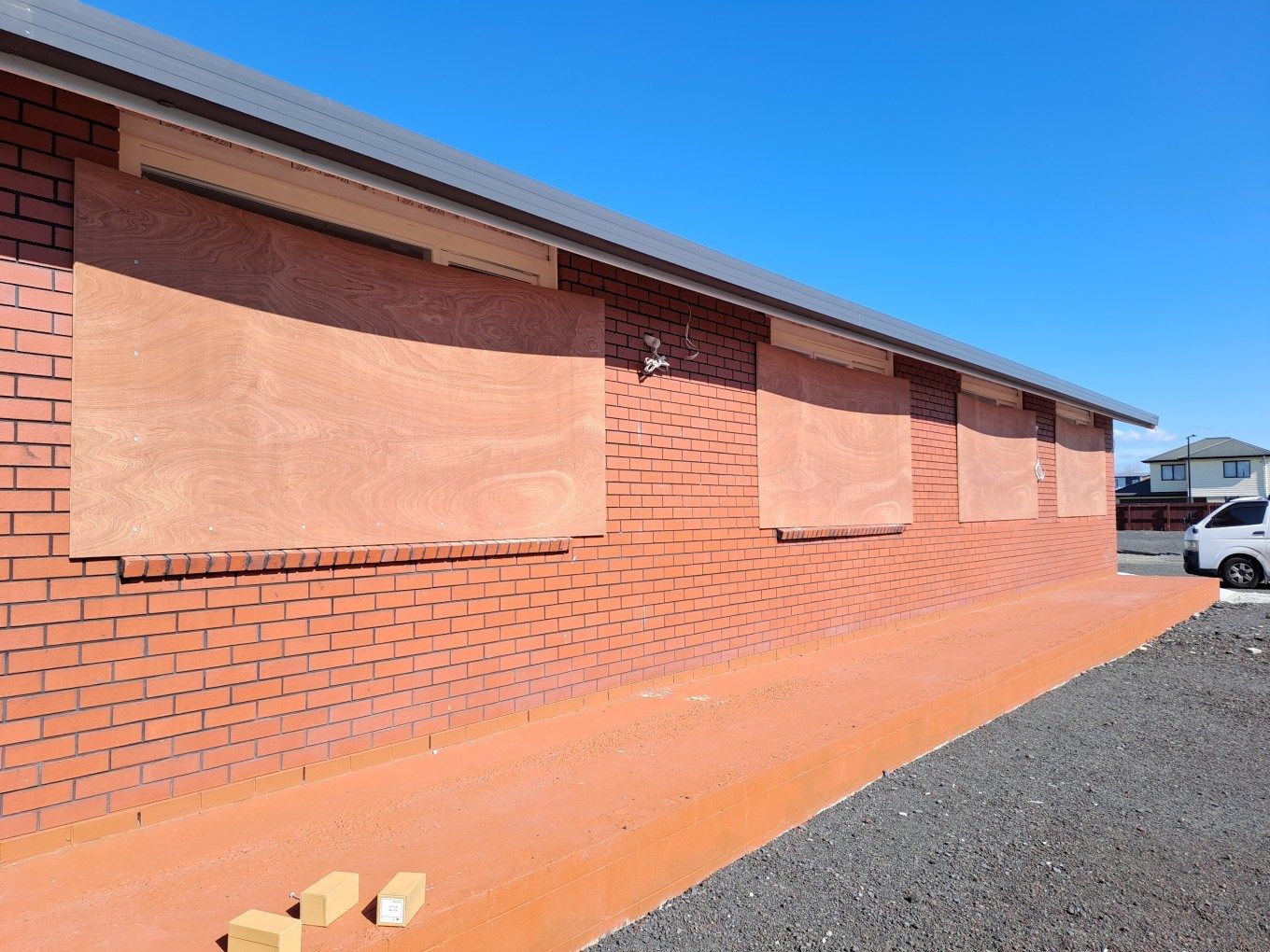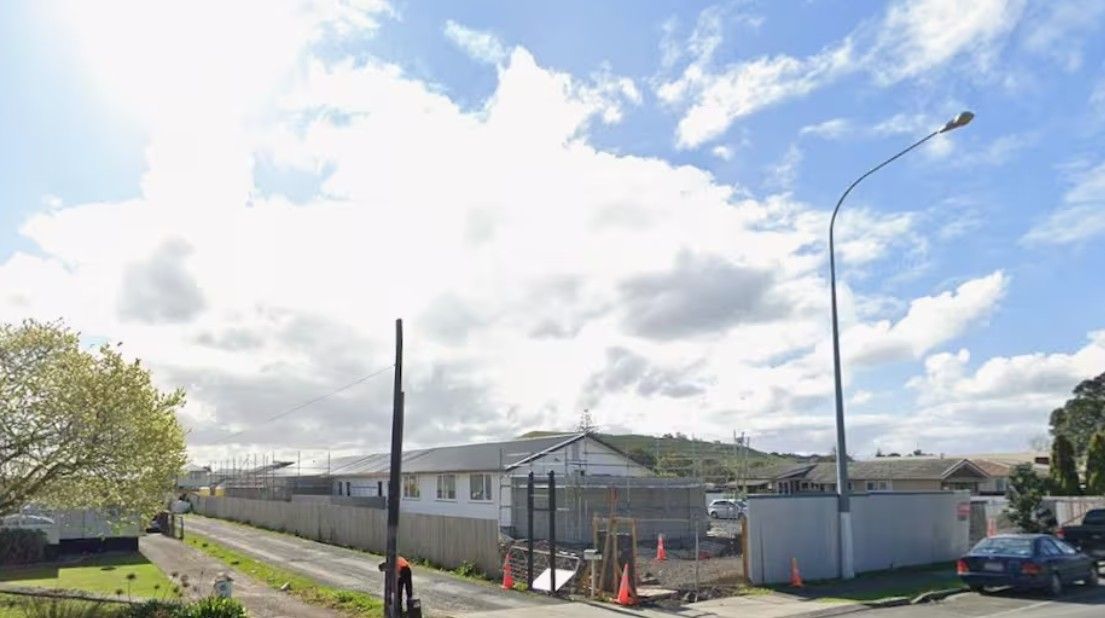

From left: Tauanu’u Nick Bakulich, Alf Filipaina and Apulu Reece Autagavaia urge churches to verify credentials and get professional advice when building a new church.
Photo/Google Maps/File.
Church’s $100k fine shows importance of due diligence for Pacific communities - leaders
Pacific community leaders say the considerable fine levied against a Māngere church trust is a hard lesson about the risks of churches relying solely on trust.



Fiji welcomes Tonga's bid for a diplomatic mission in Suva

Jenny Salesa argues for urgent cost-of-living relief as Govt defends economic record

Ōtara Youth Hub closure: A critical loss for rangatahi as funding cuts take their toll


Kiribati youth maintain culture through music and connection

Fiji welcomes Tonga's bid for a diplomatic mission in Suva

Jenny Salesa argues for urgent cost-of-living relief as Govt defends economic record

Ōtara Youth Hub closure: A critical loss for rangatahi as funding cuts take their toll
A six-figure fine imposed on a Māngere church for illegal construction should serve as a reminder to all Pacific churches of the importance of conducting necessary checks before starting any project, community leaders say.
They emphasise the need for other Pacific congregations to ask questions, verify credentials, and seek proper advice to safeguard the contributions of their members.
Their comments follow the Auckland District Court’s ruling that the Sāmoan Congregational Christian Church of New Zealand Māngere Trust and its representative, Sean Palala, were guilty of 15 breaches of the Building Act and Resource Management Act due to unlawful construction and use of a church and community centre on McKenzie Road in Māngere.
The Trust was fined more than $80,000 and ordered to pay an additional $25,300 to Auckland Council for costs. Palala also received a $7000 fine and was sentenced to 400 hours of community service.
The court heard that the church continued to use the building for gatherings despite receiving notices of its hazardous condition and orders to stop using the complex.
Pacific community leader Alf Filipaina says the church trust paid the price because it relied on someone who claimed to understand council processes but was uninformed about them.
The Manukau ward councillor says other churches can avoid making the same mistake by consulting with other congregations, verifying credentials and asking the right questions.
“They ended up contracting someone who indicated he knew the processes for building and resource consents, and he did not,” he says.
“Having that talanoa first is so important. Talk to other churches. Who did you use? How did you do it? Always double check, triple check.”
Filipaina cites two recent projects as examples of how Pacific churches can successfully navigate these processes when they engage with the right people.
He says the Sāmoan Consulate complex, Maota Fale o Sāmoa, and the new LDS (Mormon) temple in Manukau both succeeded because they used certified planners who guided them throughout every step of the process.
He adds that investing in professional help upfront is more cost-effective than facing hefty fines later. Filipaina recently spent over $5300 on a building consent for renovations to his own home.
“When you have someone who truly knows the process -resource consents, building consents, inspections - it goes smoothly. That is the difference.
“That is money upfront, but that is nothing compared to the $100,000 they are paying now. Sometimes paying early saves your people later.”

The new LDS (Mormon) temple in Manukau - cited as an example of how professional planning and proper consents lead to successful church projects. Photo/supplied.
Apulu Reece Autagavaia, chair of the Ōtara Papatoetoe Local Board, says many small churches mistakenly believe they can handle complex consent processes on their own, but it is wiser to hire professionals to assist with these procedures.
He suggests that Pacific families engage younger generations, who are more adept at navigating the system, and use community or business networks to find trustworthy assistance.
“I encourage our communities to do the due diligence and get the experts in to provide professional advice. It might cost a bit, but it is worth it because then you have safeguards when things do go wrong.
“There are plenty of churches out there starting out. Do it the right way, get professional advice. If you do not know where to start, Pacific business organisations can help, or even your bank,” Apulu says.

The Māngere property is no longer owned by the church. Photo/Auckland Council
Tauanu’u Nick Bakulich, chair of the Māngere Ōtāhuhu Local Board, says good intentions are not enough when families contribute money in good faith.
“This situation shows how important it is to involve experts in building projects who can give qualified advice on regulatory matters,” he says.
The Māngere property has since been sold, meaning the building is no longer owned by the church. Filipaina says this makes the lesson even clearer for other congregations.
“Our people gave to build that church. Now it is gone and they are paying fines on top of that. That is why you check first and do it the right way, so you do not lose what you worked so hard for.”
Auckland Council’s David Pawson says ignoring court orders and using unsafe buildings would not be tolerated.
“Compliance with building and resource consent laws is essential for the safety of our communities,” Pawson says.
Filipaina says the key takeaway is protecting the sacrifices of church members who contribute with goodwill and expect an orderly process.
“Our people give with their hearts. They deserve to know their sacrifice will not be wasted. We have seen it work when it is done right. Do the checks, protect what you build and protect your people.”

The Māngere church during construction. Photo/Google Maps
Practical steps for Pacific churches
Pacific leaders advise that any church planning a new building or renovation should consult with other churches that have successfully navigated the process.
Filipaina stresses the importance of hiring a qualified planner or consent expert and thoroughly verifying their credentials carefully.
“It’s money well spent.”Other recommendations include budgeting for proper compliance costs upfront and requesting a pre-application meeting with the council to address any uncertainties. ‘
Use trusted Pacific business networks for support.
The Sāmoan Congregational Christian Church of New Zealand Māngere Trust and Sean Palala could not be reached for comment.
LDR is local body journalism co-funded by RNZ and NZ On Air.